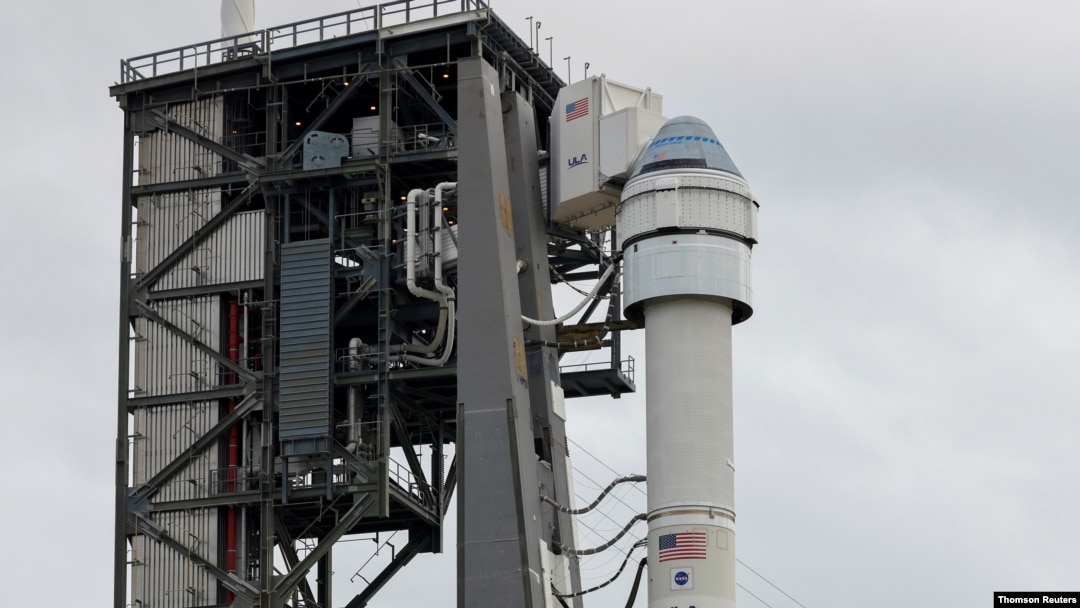The U.S. space agency, NASA, said the test flight of aerospace company Boeing’s Starliner Crew Capsule, delayed twice in the past week, has now been put off indefinitely to allow more time to troubleshoot problems with the spacecraft.
A launch of the unmanned capsule - scheduled for Tuesday from the Cape Canaveral Space Force Station in Florida - was scrubbed after Boeing officials said a prelaunch check indicated an “unexpected valve position” in the propulsion system. The capsule had been mounted atop a United Launch Alliance Atlas V rocket.
The next available launch opportunity was Wednesday, but officials decided to “stand down” from that attempt as mission teams continue to examine the cause of the problem in the Starliner propulsion system.
In a release, NASA says the mission teams have decided to roll the more the 52-meter-tall Atlas V and Starliner back into the Vertical Integration Facility, where they can better access the spacecraft for further inspection and testing.
NASA and Boeing said engineering teams have ruled out several potential causes, including software, but additional time was needed to complete the assessment, and they will take all the time they need to ensure the Starliner is ready to fly.
This is the latest setback for the Boeing space craft, designed to carry up to seven crew and passengers, which was to be test-launched unmanned to the International Space Station ((ISS)) twice in the past week.
It had first been scheduled to launch last Friday, but that was scrubbed after the Russian lab module, Nauka, caused chaos at the space station. The Russian module unexpectedly fired its thrusters, which tilted the space station 45 degrees outside its typical orientation.
The launch attempts for the Starliner had been seen as opportunities for Boeing to redeem itself following an aborted initial test launch of the space craft in December 2019. NASA officials say a software problem sent the capsule into the wrong orbit and it was not able to reach the ISS.
In a company statement Tuesday, Boeing’s commercial crew program manager, John Vollmer, said, “Human spaceflight is a complex, precise and unforgiving endeavor, and Boeing and NASA teams will take the time they need to ensure the safety and integrity of the spacecraft and the achievement of our mission objectives.”



